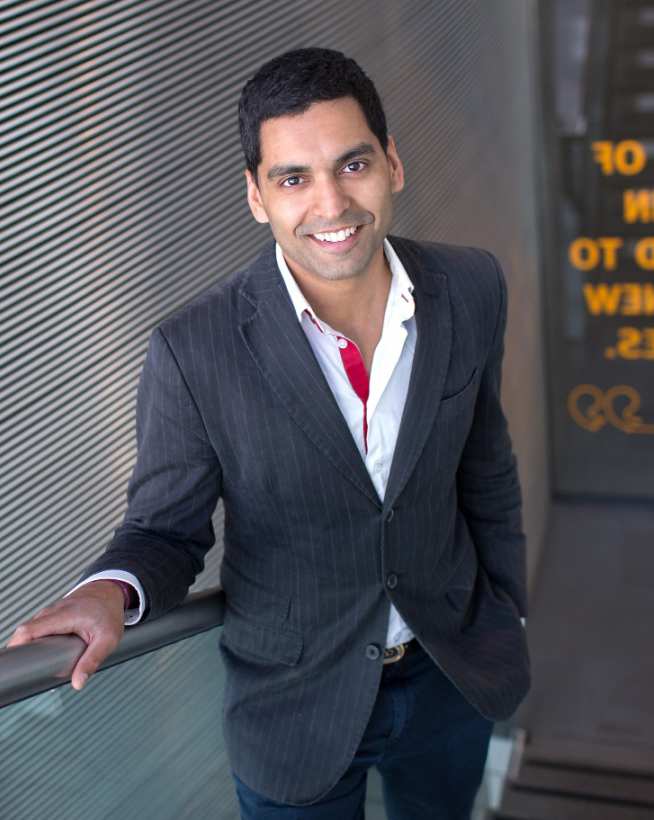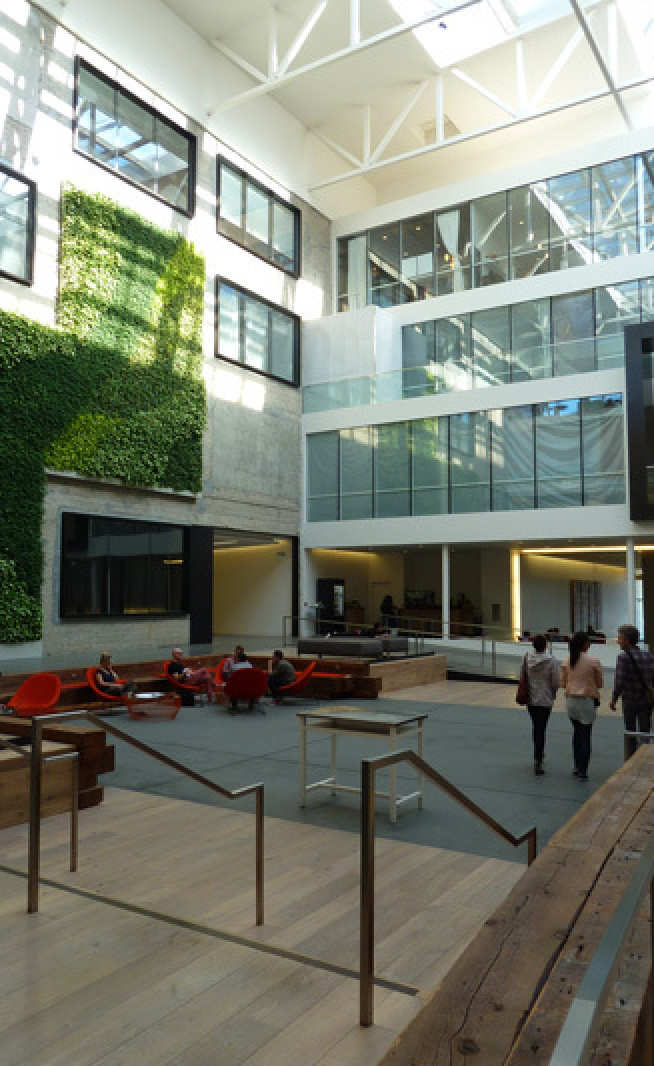
Dr Alok Gupta (MSc Maths & Finance 2006), left a successful role in algorithmic trading in New York to apply his data science skills to a new tech startup, Airbnb, a community marketplace for people to list and book unique accommodation around the world. He now manages the fraud and trust team, developing new models to try to detect and predict bad interactions on the platform and in the real world. We catch up with Alok to find out about his journey from London to Silicon Valley, and how his Imperial education has helped him along the way.
Can you talk about your time at Imperial?
"I did my first degree in pure mathematics at Cambridge and graduated in 2005. Everyone was talking about finance, banking, trading and option pricing, and I thought that avenue seemed sensible. I knew that if I wanted to get into the City then the only choice was Imperial - I wanted to study maths and finance in London at a really credible institution. I didn’t have to think too hard about it!
It was a one year Master's, three quarters of it was maths and one quarter was taught in the Business School, which meant that I made quite a lot of contacts in the City. The course was amazing and there were some very famous lecturers, some of the most eminent scholars around, like Professor Mark Davis. The course had everything from statistics, to programming, to stochastic calculus, to numerical methods, to learning things like C++. It was all really well structured and the teaching was excellent. One amazing thing about the programme was that the thesis was done with a partner in industry so I actually interviewed and then started working for a senior mathematician called Alan Bain at BNP Paribas, who is in the FX derivative pricing space. I worked with him on an alternative to Monte Carlo for faster pricing derivative options. It was great to work on a real life problem with industry data, and they continued to use my models after my three month internship ended. I actually worked full time for BNP Paribas four years later.
I was pretty involved in lots of extra-curricular stuff, like an annual student dance production called East Meets West, which takes Asian influences and fuses them with Western. I was in a couple of dance performances, which was really fun. I also played for the hockey team, and met loads of people through the teams’ regular Wednesday socials!"
What happened next?
"I went on to Oxford to do a PhD in mathematical finance. From there I went into high frequency algorithmic trading with six months at BNP Paribas and then two years at Deutsche Bank, which at the time was the number one FX provider. I moved with Deutsche Bank to New York. It was incredible actually working on Wall Street. It was quite dreamlike. A lot of the stereotypes were there, but the actual nature of the day to day work was amazing. The maths and the statistics I was able to use were both from my PhD at Oxford and my masters at Imperial. Especially the time series stuff, which I hadn’t spent a lot of time on at my PhD, I used that a lot. Essentially I was analysing historical FX prices to try to predict where the prices would go in the future.
When I was interviewing for Deutsche Bank, I dug up my old Imperial statistics notes and revised those - so six years later I was still using the notes! A lot of my research at Deutsche Bank involved coming up with better ideas for calculating the true market price - then research it, experiment with it, and if it works then code it up into a trading algorithm. We’d then deploy it and monitor it live to see if it improved revenues. It was fun, but also demanding - I worked from seven in the morning until five in the evening with a high level of intensity. And if any algorithms broke, then there would be more pressure to wade through the code and fix it.
Living in New York was perhaps the best experience of my life - it really opened my eyes. Because of New York I found myself at Airbnb. I had started to hear a lot about tech startups, Silicon Valley, and data science. I’d never heard of them in the UK and I started going to a lot of talks in New York and reading a lot of the data science blogs. I was like ‘wow, these guys are pretty much doing exactly what I do in finance but in tech, where the problems are very new, maybe more difficult, and with a richer dataset’. People had been working on the stuff we were doing at Deutsche Bank for maybe 25 years, and I wanted to work on ground-breaking new problems that no-one had a foundation in.
I applied to all the major tech firms, and Airbnb was the one that stuck out as somewhere that was growing rapidly - it was pre-IPO, and it was still trying to find its feet in the data-driven space. Another major factor was that the company was based in San Francisco, which is the heart of data science. It was a difficult to decision to leave one fantastic job for another, but I thought it would make me a better quant or data scientist – whatever the difference is!
The Bay Area now is sort of like Wall Street was 30 years ago - all these people working on new and disruptive technologies in grand offices, and looking after their staff really well. That’s one of the things I’d love to impress on current students - that there is a world outside of finance that uses data in an equally complex manner.
I didn’t even know this field existed until a year ago! There are loads of cool comparisons to draw between algorithmic trading and data science. It’s exciting too because Imperial’s now got the new Data Science Institute - I’ve met Professor Yike Guo and he’s just great so I’m excited to see what comes out of the Institute."
Tell me more about a day at Airbnb?
"I started here six months ago, as a data scientist working on fraud detection but a month ago I was promoted to manager for the fraud and trust team - which covers both fraud detection and trust enablement. In order words, how do we increase users’ trust in the platform? I think about how we might measure how people come to trust the platform and other members of the community. We’re actually working with academic institutions like Stanford to measure that, and publishing papers with them too.
We’re still developing new models to try to detect and predict bad interactions on the platform and in the real world. A question we are trying to answer is can we actually predict with some degree of precision whether a host and guest will have an experience that reduces their trust of each other and Airbnb? This is a really tough problem - predicting people’s actions in the real world – and no one has ever really had data as good as ours to try and answer it before!"
How do you use your Imperial degree in your role at Airbnb?
"Something that came up recently was when someone was giving a talk on how to better rank listings based on reviews - the problem of whether or not a listing with two 5.0 star reviews is better than a listing with one hundred 4.5 star reviews. Something we studied at Imperial in a finance course was the concept of a Sharpe Ratio - which can be used to decide between two different trading strategies, when each has a different profit and loss. So the question is ‘is a trading strategy with two profits of $10 better than one with a hundred profits of $0.20?’ The Sharpe Ratio offers a way to normalise for the number of trades – and we can apply that to the reviews too."

What’s the atmosphere here like?
"The culture here is pretty much built around self-starters, the ones who come up with projects and get on with them by themselves. The environment is set up to make the day-to-day stuff as smooth as possible. So for instance food is not an issue here or something anyone thinks about. Breakfast, lunch, dinner, snacks - and alcohol upstairs. The environment is also designed to be conducive to creativity - there are sofas, bright colours, white boards, tables everywhere - and meeting rooms are quirky to open your mind up. Every meeting room is based on a real listing on the site. It’s designed to massage the idea of Airbnb hospitality into the DNA of everything we do.
There are also no set timings - some come in 8am, some come in at 11am. It’s a very trusting atmosphere to work in. There’s a culture of recognition - you get to work on new things as quickly as you can deliver. The fact that we’re based in San Francisco means that we’re walking distance from Twitter, Square, Uber, Lyft, all these other huge new tech companies you hear about. Once a week or so we have a lunch swap with them - throw around ideas, even open source libraries of code with each other.
It’s also amazing just having the co-founders walking around the office - I’ve had breakfast with the CEO a couple of times, and have had meetings with the other co-founders. They’re really just a part of the team and they still work like anyone else, just on the floor. Everyone’s really down to earth and all in it together - everyone’s really humble and that’s cool."
Where’s Airbnb heading?
"Airbnb started as a place to stay for the night, but now it wants to facilitate better travel experiences. It wants to break away from, for example, the model where someone comes to London and sees Big Ben, the Houses of Parliament, and St Paul's. It’s more about people saying ‘you should check out Green Park, or Primrose Hill, or go down Exhibition Road, or go to my favourite coffee shops and bakeries’. It’s about accessing the cool hubs you’d never see on the map, and it’s about empowering locals to say ‘hey, come stay at my place, I’d love to give you a tour of local pubs in my area, or take you on a bike ride, or on a walk through the local neighbourhood’."
Alok's advice to current students
"I didn’t even know this field existed until a year ago! There is a world outside of finance that uses data in an equally complex manner."